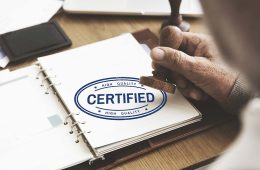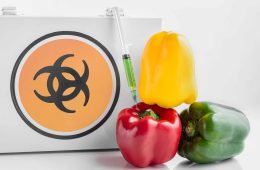how can we help you?
Contact us at the Consulting WP office nearest to you or submit a business inquiry online.
Having values, we offer strictly professional services and through the recognition and reputation of the A CERT, our associated companies and structures and strategic collaborators, we add value to the products, services, institutes and organizations giving them a competitive advantage and making them capable of achieving a dominant position in national and international level.


Inspection & Certification
Inspection and certification services in Greece encompass a diverse range of activities undertaken by independent third-party organizations. These services are designed to assess the conformity of products, systems, and processes with specific standards, regulations, or customer requirements. The overarching goal is to ensure quality, safety, and compliance, thereby enhancing market access and consumer confidence.
Management Systems Certification services focus on evaluating the effectiveness of management systems within organizations. These systems may include quality management, environmental management, occupational health and safety, information security, and energy management.
Products Certification services involve verifying the conformity of products to established standards and regulations. This includes conformity assessment, type testing, factory production control, and product marking and labeling.
Inspection services cover a broad spectrum of activities, including pre-shipment inspections, in-process inspections, final inspections, construction inspections, and technical inspections. These services aim to monitor production processes, verify product quality, and assess the condition of equipment and infrastructure.
Certification of Persons services recognize the competence of individuals in specific fields, such as engineering, quality management, and environmental management.
The benefits of utilizing inspection and certification services are manifold. They include enhanced product quality and safety, improved market access, increased consumer confidence, risk mitigation, and a culture of continuous improvement. By adhering to international standards and engaging with accredited certification bodies, businesses in Greece can strengthen their market position, protect their brand reputation, and contribute to a more sustainable and prosperous economy.
Management Systems Certification
is a formal process where an independent third-party organization assesses an organization’s management system against a specific standard to verify its effectiveness and compliance. This certification assures stakeholders, including customers, investors, and regulators, that the organization has implemented and maintains robust processes to achieve its goals.
Examples Management System Standards:
Several internationally recognized standards are used for management system certification:
ISO 9001: Quality Management Systems: This standard focuses on improving an organization’s ability to consistently provide products and services that meet customer and statutory requirements.
ISO 14001: Environmental Management Systems: This standard helps organizations minimize their environmental impact and improve their environmental performance.
ISO 45001: Occupational Health and Safety Management Systems: This standard helps organizations improve their occupational health and safety performance.
ISO/IEC 27001: Information Security Management Systems: This standard helps organizations protect sensitive information assets.
ISO 22000: Food Safety Management Systems: This standard helps organizations implement food safety management systems.
Management Systems Certification Services
Quality Management System according to ISO 9001
Food Safety Management System according to ISO 22000
Environmental Management System according to ISO 14001
Management System for the petroleum industries according to ISO/TS 29001
Information Technology Services Management System according to ISO 20000
Quality Management System for Medical Devices according to ISO 13485
Occupational Health and Safety Management System according to ISO 45001
Information Security Management System according to ISO 27001
Management System according to GMP/GMP+
Management System according to GHP/HACCP/Codex Alimentarius
Cosmetics Good Manufacturing Practices (GMP) in compliance with ISO 22716
Business Continuity Management System according to ISO 22301
Food Safety Management System according to FSSC 22000

Products Inspection and Certification
is a service that ensures the quality, quantity, and safety of goods being traded globally. It involves a rigorous process of inspecting and testing products to verify that they meet specific standards and regulations.
Key Aspects of Inspection and Certification:
Quality Assurance:
Product Quality: Verifying that products meet specified quality standards, including material composition, workmanship, and performance.
Safety Standards: Ensuring products comply with safety regulations and pose no risk to consumers or the environment.
Regulatory Compliance: Confirming adherence to local and international regulations, such as labeling, packaging, and import/export requirements.
Quantity Assurance:
Quantity Verification: Checking the quantity of goods to ensure it matches the declared amount.
Weight and Measure: Verifying the accuracy of weight and measurement instruments used in the production and trade process.
Third-Party Inspection:
Independent Verification: Providing impartial assessments by independent inspectors to ensure objectivity.
Reduced Risk: Mitigating risks associated with product quality, safety, and compliance issues.
Enhanced Trust: Building trust between buyers and sellers by providing reliable and transparent inspection reports.
Commonly Inspected Products and Commodities:
Agricultural Products: Grains, fruits, vegetables, and other food items.
Industrial Goods: Machinery, equipment, and raw materials.
Consumer Goods: Electronics, textiles, toys, and household appliances.
Textiles and Apparel: Fabrics, garments, and accessories.
Minerals and Metals: Ores, metals, and alloys.
Chemicals and Petrochemicals: Various chemical products and petroleum derivatives.
Products Certification Services
Organic in compliance with A CERT Organic Standard equivalent to Reg. (EC) 834/2007 and Reg. (EC) 1235/2008 for Non-EU Countries
Organic in compliance with Reg. (EC) 834/2007 & Reg. (EC) 889/2008 for EU Countries
International Featured Standards (IFS)
Safe Quality Food (SQF)
Classification
Integrated Management System of Rural Environment in compliance with AGRO 2
GLOBALG.A.P/RusG.A.P. Integrated Farm Assurance (IFA)
Toxic Free
Lactose Free
Gluten Free
Organic and Natural Cosmetics
USDA NOP for exports from EU to USA
Coronavirus SAFE
CE Marking

Persons’ certification
is a process that formally recognizes an individual’s competence, skills, and knowledge in a specific field or profession. It serves as a validation of expertise and enhances professional credibility.
Individuals undergo a rigorous assessment process, which typically involves written exams, practical tests, or portfolio reviews. Upon successful completion of the assessment, they are awarded a certification that confirms their competence. Certified individuals are recognized by employers, clients, and peers as possessing the necessary qualifications and skills.
Persons’ certification offers numerous benefits, including enhanced career prospects, increased earning potential, professional recognition, improved job performance, career advancement, and industry recognition.
Common areas of persons’ certification include IT and technology, healthcare, engineering, finance and accounting, education, and construction. Many organizations, including professional certification bodies, academic institutions, and government agencies, offer certification programs.
By obtaining a recognized certification, individuals can demonstrate their commitment to professional excellence and enhance their career prospects.

































